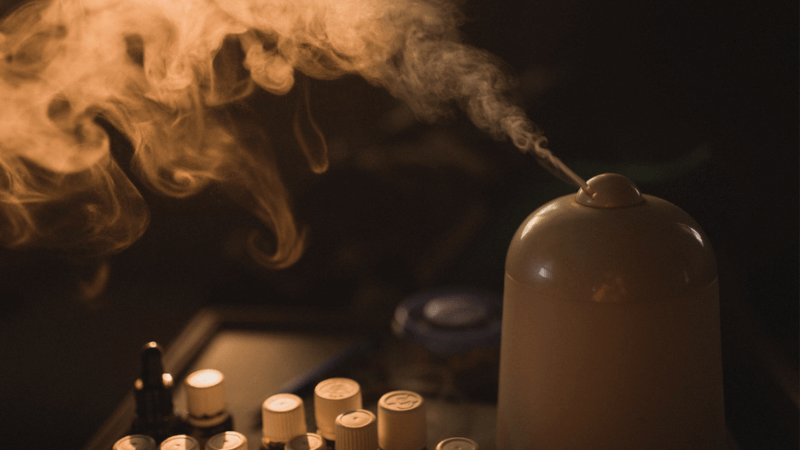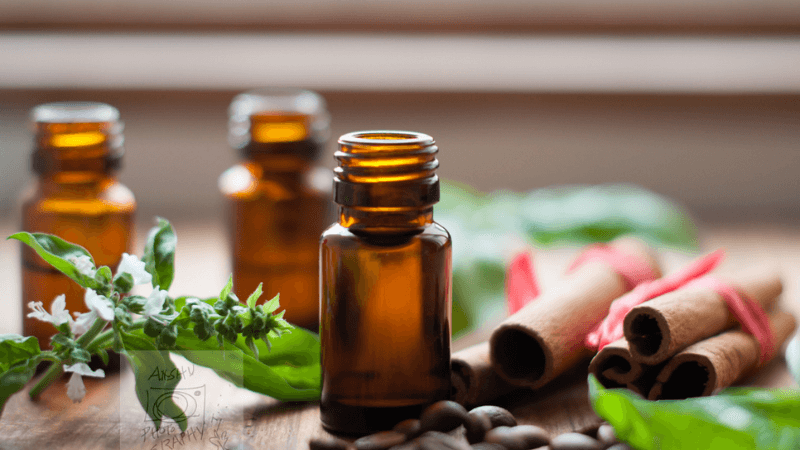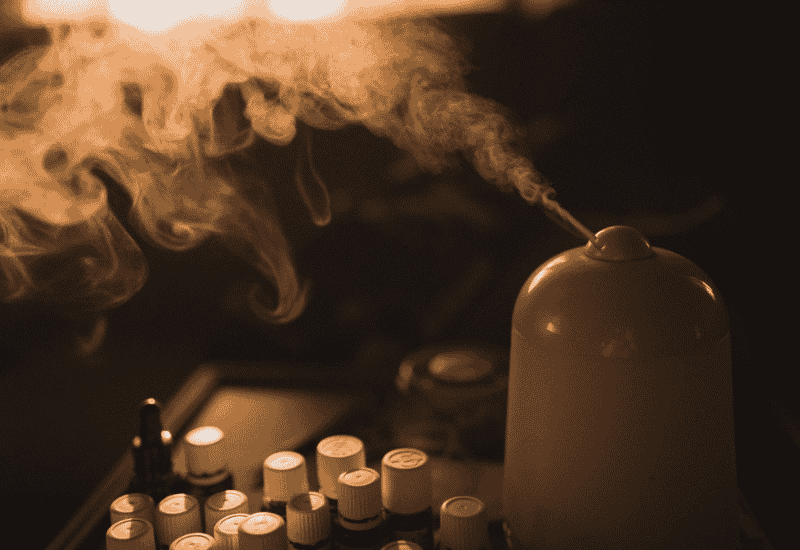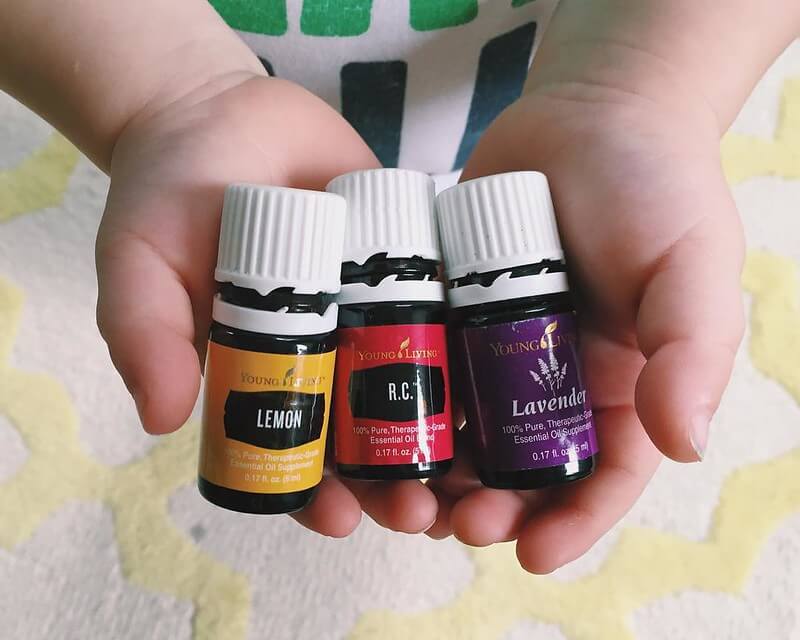There are many ways of using essential oils. You can add a few drops into a warm, soothing bath or apply them diluted on pulse points throughout your body. However, the best way to use essential oils is via a diffuser. This, unlike most methods, gives you and your loved ones multiple benefits of essential oils.
What are Essential Oils?
Essential oils are compounds made from parts of different plants like leaves, seeds, roots, bark, and rinds. The oils capture a plant’s flavor and scent, or ‘essence’. They are used mostly in aromatherapy, which employs essential oils to support well-being and health.
Can I Put Essential Oils in My Humidifier?
No, you cannot put essential oils in a humidifier. Essential oils are very corrosive, destroying the plastic tank, fan mechanism or even clogging the humidifier. The only thing that should go into your humidifier is distilled water.
[/snippet]Use Essential Oils in a Diffuser
Diffusers are the best for use with essential oils, Compared to humidifiers. Here are some reasons why diffusers will triumph.
1. Essential Oils are Corrosive
Because essential oils are corrosive, diffusers are made of Polypropylene (PP) material. This means they are oil-proof, waterproof, and do not corrode when exposed to essential oils. Humidifiers use ABS or AS plastic in water tanks. However, the material can’t stand the corrosion of essential oils, which will cause damage over time.
2. Advanced Atomization Modules
Diffusers use advanced atomization modules and international patent air duct designs to make sure they produce concentrated mist with thin and even particles that last longer in the air. Humidifiers use bigger atomization plates; thus, the particles produced are bigger and heavy. This reduces the duration of lingering and overall benefits of essential oils.
3. Diffusers are More Effective
Both diffusers and humidifiers use ultrasonic technology. With diffusers, the technology can atomize water molecules effectively and on a nano-scale, increasing the oils’ benefits. The ultrasonic vibrations in a humidifier are too low to diffuse essential oils effectively. This leaves oils stuck in the humidifier, which end up clogging or degrading humidifier parts.
Humidifiers Vs. Diffusers
Humidifiers, unlike diffusers, work to increase and maintain the humidity levels in your home. The working principle of these two home appliances is different.
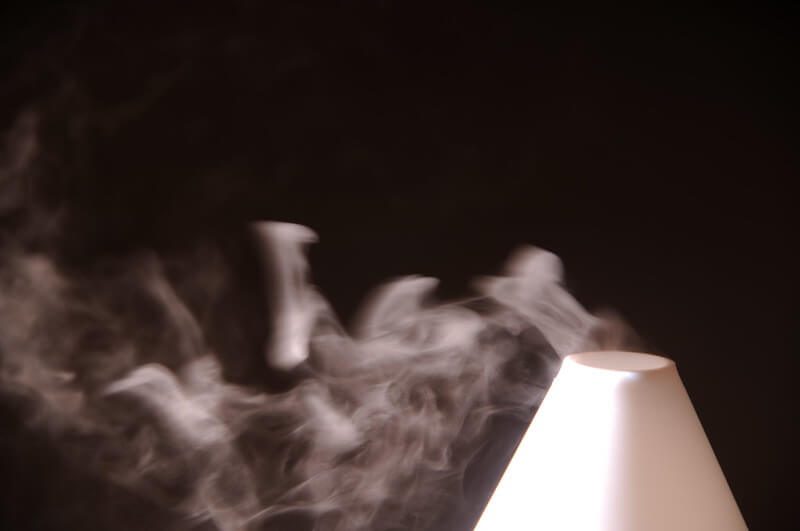
You choose several types of humidifiers – Evaporative, Impeller, steam, and ultrasonic humidifiers. All these humidifiers have in common is they work to humidify the air in your home.
On the other hand, diffusers at the most basic level work to disperse essential oils into the air for easy absorption by our bodies. There are four basic types of oil diffusers: ultrasonic, heat, evaporative, and nebulizer.
Read my humidifier vs. diffusers guide for an in-depth guide on diffusers and humidifiers.
[snippet]Which is Better for Essential Oils, Diffuser or Humidifier?
Both of these devices have different uses and benefits. Pick a humidifier if you want to increase and maintain the humidity in your home. Diffusers are suitable for aromatherapy. A diffuser is best for breaking down essential oils into small particles for easy absorption by our bodies.
[/snippet]If you still want to Use Essential Oils in Humidifier, You should check with your manufacturer to ensure they can handle them. This will keep your humidifier safe and also help keep your warranty valid.
Some appliances can humidify and diffuse. If you have not yet bought a humidifier or diffuser, consider getting a humidifier diffuser combo. This way, you will experience both without risking either of them.
Is it Bad to Use Tap Water or Boiled water in a Humidifier?
Tap water contains minerals, bacteria, and other pathogens that might enter your home air through a humidifier and end up causing damage. To use tap water in a humidifier, filter the water to remove any hazardous materials. You can also get a humidifier with a filtration mechanism to help when using tap water.
Boiled tap water might kill pathogens and other microbes in the water. However, the water will remain ‘hard.’ This means it still contains minerals like iron, magnesium, calcium, and more. These minerals might build and destroy the water tank or cause a physical breakdown of other humidifier parts. Check out this post on the types of water to use in a humidifier.
Is it OK to Run Vinegar Through a Humidifier?
Yes. Vinegar acts as a natural cleanser that will loosen particles buildup at the bottom of a humidifier tank. When you are done washing the water tank, rinse it thoroughly.
Should I Put salt in My Humidifier?
No. Unless the manufacturer approves, salt should not be added to a humidifier. Salt will reduce your humidifier’s lifespan, clog the filter, hinder proper operation, and ultimately destroy the humidifier.
Happy Using Essential Oils
Using essential oils in a humidifier is not advisable. Diffusers are the best for essential oils and will ensure you reap the benefits of the oils. To diffuse and humidify simultaneously, you can either get a diffuser and a humidifier or a diffuser-humidifier combo.

